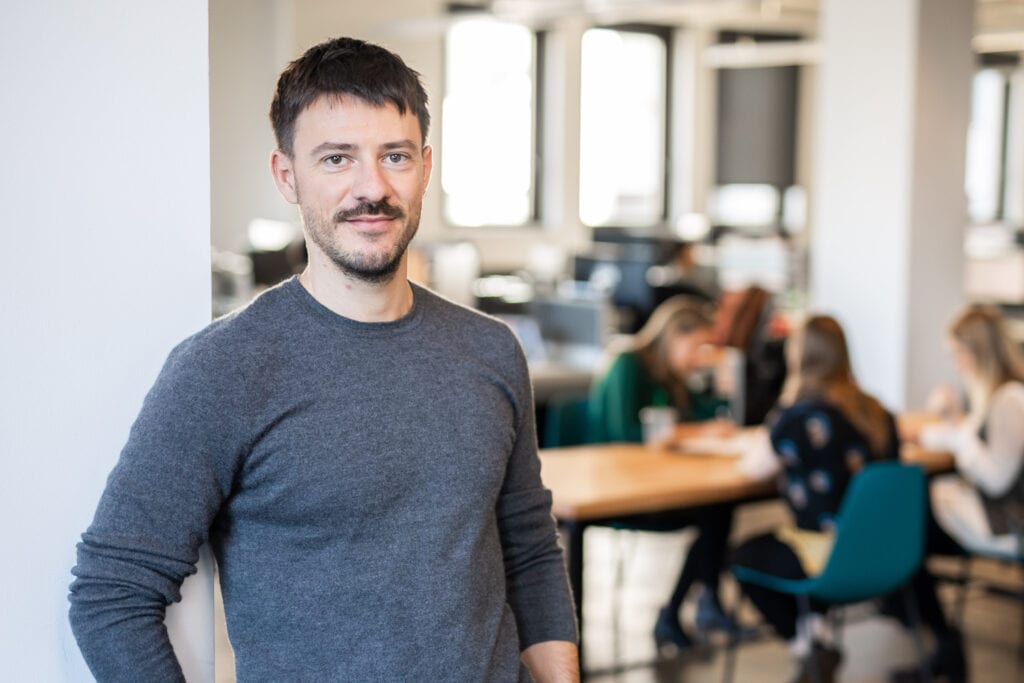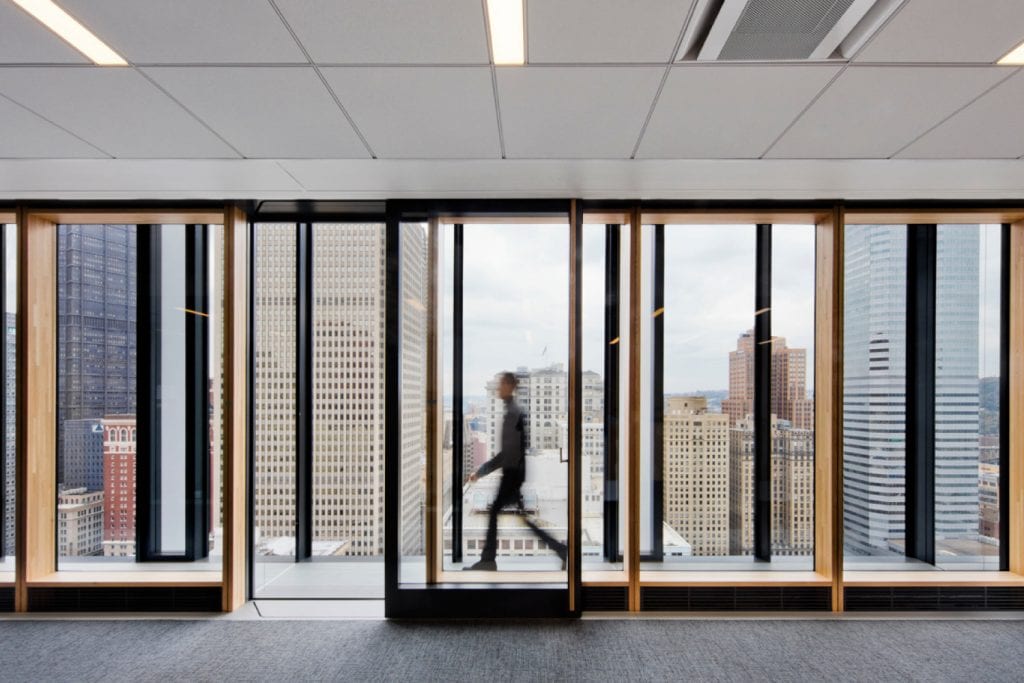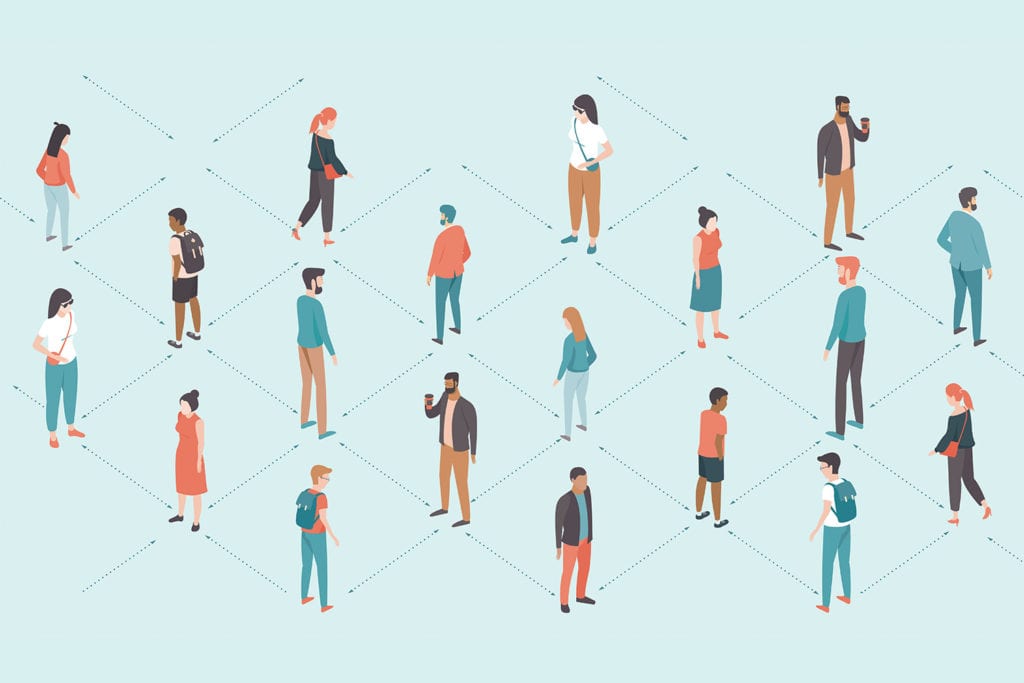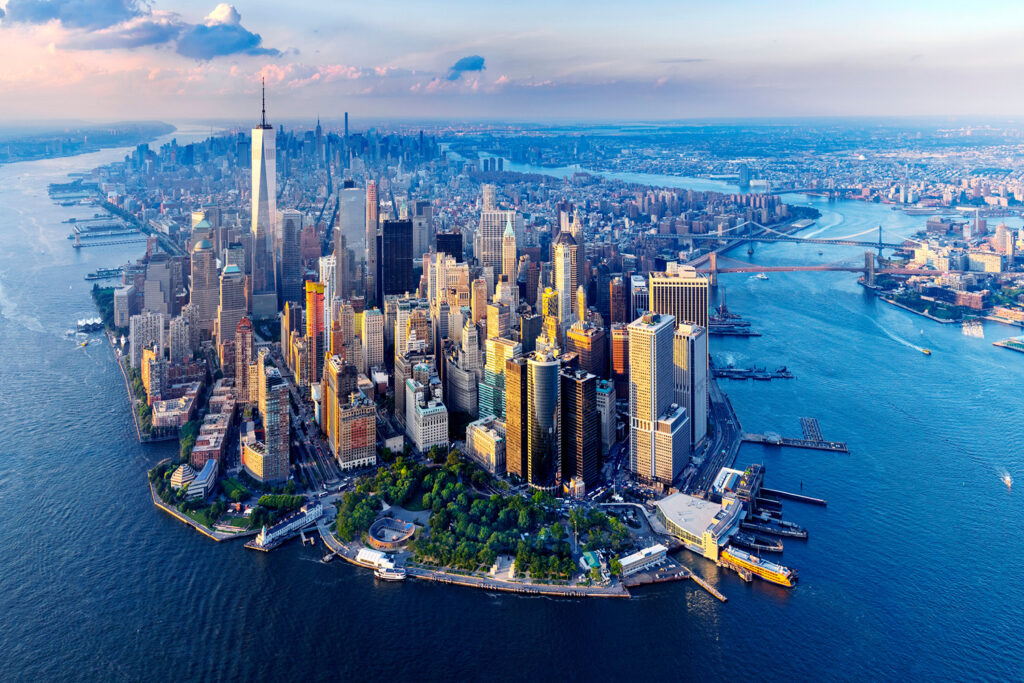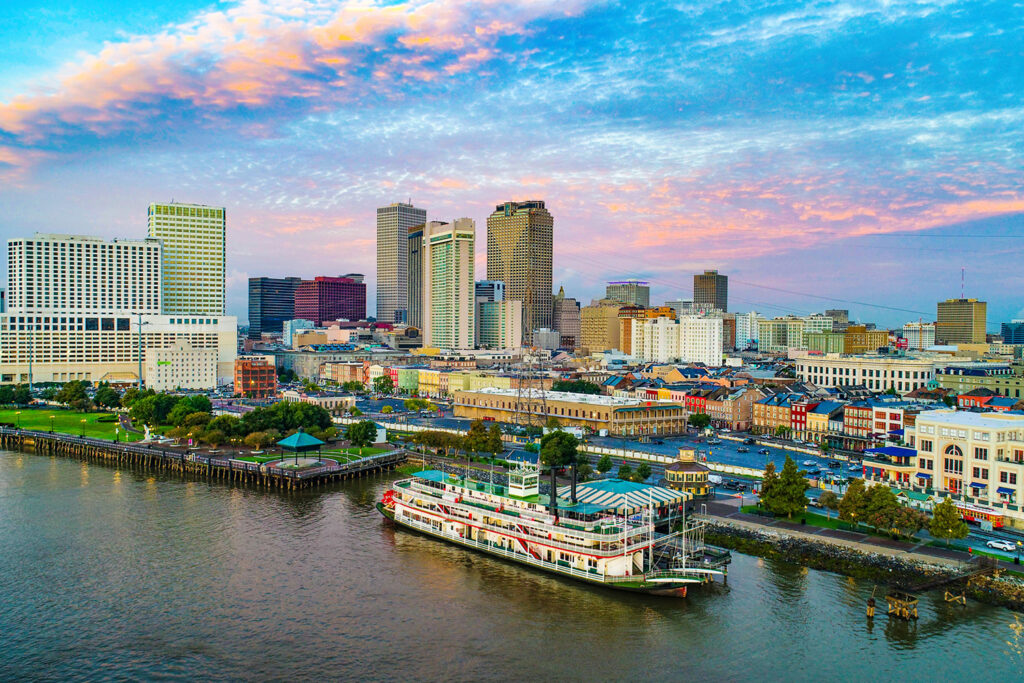Virtual Forum: Mobility in the Post-Covid Era Recap
This virtual forum focused on the Mobility Sector, which has been strongly impacted by the Covid-19 stay at home orders.
On June 4th, Buro Happold hosted its second virtual forum as part of the 3-part series “Adaptive Cities in a Post-Covid Era.” The topic explored was mobility and included themes such as the redefinition of the role of streets, how physical mobility is related to social and economic mobility and the role of public transportation in the US.
Francesco Cerroni, a mobility leader of Buro Happold’s Cities team, moderated the discussion,
which included the following strategic thinkers from the mobility sector:
- Tamika Butler, ESQ., Principal-in-Charge, Toole Design
- Anne Lusk, Research Scientist at Harvard School of Public Health
- Laura Smith, Deputy Director, Transportation Division at NYC Department of City Planning
- Jeff Speck, Principal, Speck & Associates LLC and author of “Walkable Cities”
- Jarrett Walker, President of Jarrett Walker and Associates and author of “Human Transit”
Here are a few key ideas and takeaways
from this dynamic event:
“If you want to be economically mobile, having good transportation options is key.”
Tamika Butler, ESQ.
Principal-in-Charge, Toole Design
Economic mobility is tied to transportation mobility
Tamika highlighted a number of ways in which major societal issues are directly linked to transportation.
She said that with the pandemic, layered with the uprisings across the world for Black Lives Matter and racial justice, it doesn’t matter if there’s enough room on the sidewalk or how wide a bike lane is or if it exists or not.
“At some point, we have to go back even before that, we have to realize that there is a reason why Black folks are dying at a disproportionately high rate than other people as the result of this pandemic…they’re isolated from services, from jobs, from access to quality healthcare,” Tamika said.
She also mentioned that it’s imperative to have intersectional conversations across disciplines – from transportation and public health to policing.
“If we don’t have these intersectional conversations that all have the foundation that we have to be anti-racist, we have to acknowledge the way racism and particularly anti-blackness plays into our policy-making and decision making and who we anoint as experts and leaders, then we’re not going to be able to change anything whether it’s pre, post, or during Covid.”
Changing the narrative on the importance of public transportation
During Covid-19, everyone’s typical habits have been disrupted so there is an opportunity to change the conversation about public transit, Jarrett said. Because ridership is going to be down for a long time, in particular, elite ridership shouldn’t be the only way to measure the success of transit.
Those who can work from home will do so, while others who hold civilization together such as hospital workers and grocery store clerks, for example, will have to continue taking public transportation.
“So we have to tell a new story about why we all depend on those people, and why we are all transit-dependent by virtue of the fact that our civilization wouldn’t be functioning if all those people couldn’t get around,” he said.
Continuing what Jarrett spoke about, Anne commented on the behavioral changes in people since the start of the pandemic. She said there are five stages to behavior change: pre-contemplation, contemplation, preparation, action and then maintenance.
“It’s very hard to change behavior, but we have seen many people immediately switching to action because of Covid. There are more people who are going out and buying bikes, there are more people who are walking, there are more people who are biking to the store. So, I want us to be able to understand the five stages of behavior change,” Anne said.
Some ideas Anne shared included giving out free bikes, building affordable bike parking and storage spaces, wide cycle tracks, the creation of bicycle piazzas and lastly, allowing bikes in grocery stores.
A full economic reopening in cities in the US, including New York can not be expected without people feeling comfortable commuting by public transportation
Laura said that biking is one form that might be more permanent even after the pandemic, and that the number of people biking has continued to increase over the past few weeks and months.
“There’s a lot more bikers on the road relative to other travellers on the road. I think there’s strength in numbers. I think that people will start to get more comfortable with this, it will become more normalized. Workplaces will certainly not frown upon one of their employees showing up at work a little bit sweaty with a bike. They’ll hopefully just be grateful that their employee was able to show up at all. So, I think that culture change is one that there’s a greater potential for. At least I hope so,” she said.
Creating a more equitable and inclusive urban planning and mobility culture
With emotions still raw after the killing of George Floyd, the panel discussed ways in which our own industry fails to be inclusive – where decisions and ideas for improving transportation and mobility are one-sided and led by mostly white planners and urbanists while not taking into account Black or minority voices.
“There is a world with people with names that are different than Karen and Becky and Anne and Jeff who are talking about these things, who have been talking about these things, who have produced research and literature and studies on these things,” Tamika said.
The panel wrapped up with a call to action – to be informed, to seek out those people who are already working on mobility issues, and to start acting to make transportation options more equitable for all.
- Greenlining Institute envisions a nation where communities of color thrive and race is never a barrier to economic opportunity https://greenlining.org/
- Transit Center, a foundation that works to improve public transit in cities across the U.S. https://transitcenter.org/
- TransForm believes that all Californians should be able to live in healthy, connected communities with great options to get where we need to go https://www.transformca.org/
- Transportation Alternatives’ mission is to reclaim NYC’s streets from the automobile and advocate for better bicycling, walking, and public transit for all https://www.transalt.org/
